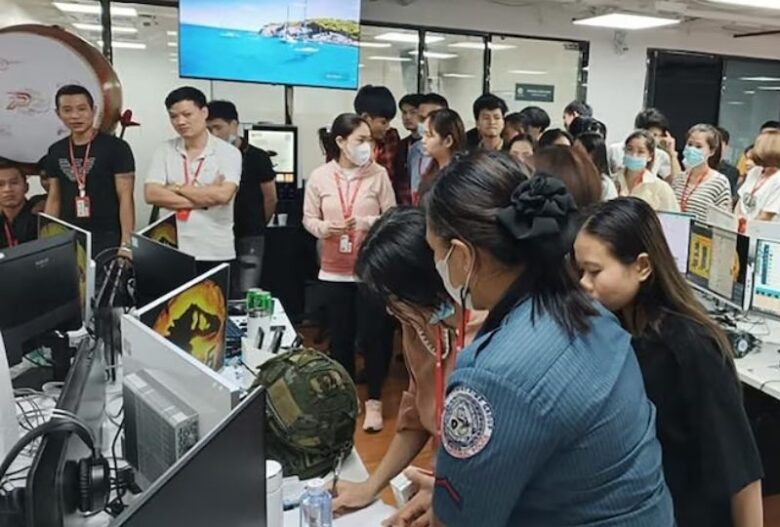The Philippine government has ordered approximately 20,000 foreign workers, primarily employed by Chinese-owned offshore gambling firms, to leave the country within 60 days.
President Ferdinand Marcos Jr. announced a ban on online gambling operations, citing their involvement in serious crimes such as murder, kidnapping, online scams, human trafficking, and torture.
The ban is effective immediately, although the country’s gaming agency has been given until the end of the year to phase out these operations.
Marcos criticized the gambling firms for engaging in illegal activities beyond gaming, including financial scamming, money laundering, prostitution, human trafficking, kidnapping, and even murder.
Many of the affected foreign workers are from China, Vietnam, and other Southeast Asian countries. They were recruited under false promises of high salaries but faced harsh working conditions and threats if they attempted to escape.
Philippine Immigration Chief Norman Tansingco stated that the workers have 59 days to exit the country, with deportation planned for those who remain past the deadline.
Benedikt Hofmann, deputy regional representative for South-East Asia and the Pacific at the UN Office on Drugs and Crime, described the ban as a significant step.
He noted that while the ban might remove a layer of legality from many illegal operators, it could also drive criminal activities further underground and push them to regions with weaker enforcement.
The Presidential Anti-Organized Crime Commission affirmed that the crackdown on illegal POGOs involved in crimes such as scams and human trafficking will continue.
POGOs, which emerged in 2016 and thrived by targeting Chinese customers where gambling is banned, have dwindled from around 300 to just 42 active firms due to the pandemic and stricter tax regulations.
Alejandro Tengco, chairman of the Philippine Amusement and Gaming Corporation, emphasized the need to prevent these firms from operating covertly.
The ban may also impact diplomatic relations with China. Analysts suggest it could help ease tensions between the Philippines and China, which have been strained over issues such as the South China Sea and expanded US military presence in the Philippines.
China has supported the Philippines’ decision, with the Chinese Embassy praising the move as aligning with the interests of both countries and reaffirming China’s commitment to cooperation on law enforcement to protect the safety and wellbeing of both peoples.
“We believe this decision echoes the call of the Philippine people and serves the common interests of people of both countries,” a Chinese Embassy statement said.
“China is ready to continue its strong law enforcement cooperation with the Philippines and better protect the safety and wellbeing of the two peoples.”
YOU MAY ALSO READ: South African police arrest 95 Libyan nationals in raid on alleged secret military camp









Got a Question?
Find us on Socials or Contact us and we’ll get back to you as soon as possible.